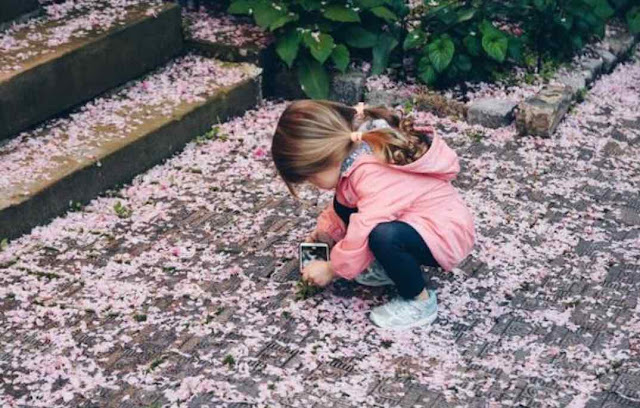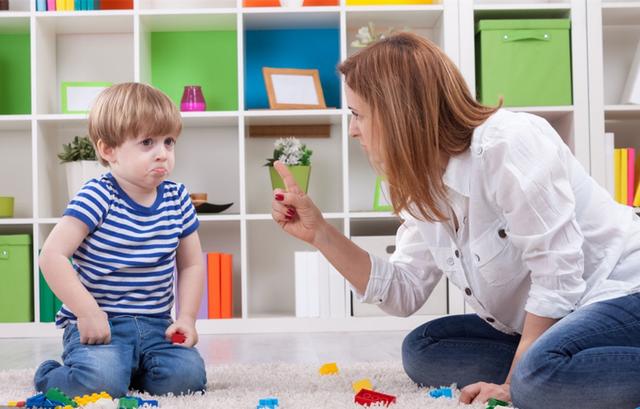5 Methods Of Scientific Management Of Two-Year-Olds' Education
The 2-year-old baby is called Terrible Two. It seems that as soon as they reach the age of 2, the cute and cute baby turns into a little devil in seconds. So, how should 2-year-old babies be educated so that they can survive this period?

Parents Can Do This On Weekdays
How to live in harmony with the 2-year-old baby, and help the 2-year-old baby to survive the first little rebellious period in life?
1. Re-Examine The Parent-Child Relationship And The Relationship Between Husband And Wife, And Sort Them
Before the baby is 2 years old, he gets the most attention from the whole family. They will get all the privileges of the whole family. People around him will take good care of him. Taking him as the center will make him mistakenly think that he is the center of the universe. Take care of your children wholeheartedly.
After the child is 2 years old, it is necessary to change the child's cognition, to elevate the relationship between husband and wife to a higher stage, and let the child understand that the relationship between parents is greater than the relationship between parents and children, instead of continuing to allow the relationship between parent and child to override the relationship between husband and wife.
The stable relationship between husband and wife is actually the most favorable cornerstone of the parent-child relationship, and also the most important foundation for the child's sense of security and happiness.
2. Do One Less Thing At A Time For Your Child
The 2-year-old child is also the first step towards independence. During this period, the mother has to gradually assign to the child the things that the child did before. This is difficult for most Chinese parents to do. It is not recognized that children can do it.
I once watched a small video of a 1.5-year-old boy from abroad. After getting up, he dressed, soaked cereal, fed the dog, undressed, took a bath, and dressed. He did a very good job;
I have also seen a mother post about her 3-year-old child, climbing up a chair and cooking for herself.
In fact, the potential of children is very large, but too many arrangements by adults restrict the development of children, and if they miss the most active period of children, children become lazy, and it will become difficult to cultivate them again.
3. Gently But Firmly Set Rules For Children
Positive discipline has always advocated being gentle and firm with children, and setting rules for children should be gentle and firm.
A mother in my neighborhood said very strangely: After her son played with toys in the morning nursery class, he would take the initiative to put the toys away. The teacher would often praise him, but at home, he would not put away the toys. She wondered how the child had become "two-faced".
Through further conversation, I found that the child was brought by his grandmother before, and after playing with toys at home, his grandmother helped to clean it up, and the child did not have the consciousness to clean up at all. During this time, when my grandmother went back to her hometown, many of the children's habits were exposed.
If your child doesn't like to collect toys at home, you might as well come up with a name for the toy box. You can use the name of a cartoon character your child likes, such as "Lightning McQueen's Home". Little boys like small cars. After playing, remind them to Let the little toys go back to Lightning McQueen's house.
At first, parents can accompany their children to collect them together, but they can do it more and more slowly. When the children clean up faster than themselves, they can praise the children and say: wow, you put away the toys so fast, let them all go home in a short while.
After the child develops a habit, the parents can quit and let the child clean up the toys by themselves. The other things are also, gradually developing a sense of rules for the child. If the child's sense of rules is not enough when he is a child, he will be more arrogant in adolescence. At that time, he can already contradict Parents, parents can't do anything about it.
Set rules for children, be gentle and firm, and let children understand where the basic bottom line of everything is.
4. Talk About The Matter, Don't Label It
Children at this stage belong to the first little rebellious period in their life. Parents often see that their children are too naughty or rebellious, and they can’t help but say: This child does everything against me, which is really annoying.
I mentioned earlier in another article that you can use role expectations for children instead of hitting education.
Since we understand that the characteristics of children at this stage are like this, complaining is useless. We might as well use the role expectation method to fully praise the good aspects of the child. For the bad aspects, parents can change their perspective.
5. When The Child Begins To Stubbornly Refuse To Do It, He Might As Well Relax A Step
Sometimes children are very stubborn and unwilling to compromise on something, they might as well give the child a turnaround because if the adult takes a step back, the child will be very happy and will happily accept the parent's advice.
For example, when the child is playing outside and refuses to go home, he can squat down and say to the child seriously: It’s really fun to play outside, but it’s already six o’clock. Mom is at home waiting for us to come home for dinner. Play for 10 minutes and then go home? We can still play here tomorrow.
When the child sees a turnaround in the situation, he does not leave immediately, but he will still be very happy and agree to it. The parents can show the child the time at that time, let the child add ten minutes, or tell the child when the number becomes. Time to go home.
The parents understood the child's needs, "it's really fun here", and told the child the rules "it's six o'clock, mom will wait for us to eat", and left room for the child "you can play for another ten minutes", and gave the child new expectations "Tomorrow we can still play", so the child will no longer be stubborn.

Understand The Characteristics Of A 2-Year-Old Baby
Swiss developmental psychologist Jean Piaget called the sensory-motor period from birth to 2 years old.
He said that children at this stage collect a very large amount of information from the outside world every day. They always move around to obtain sensory data of the external environment and catalog and classify it. Their exploration of the environment can be casual and extensive.
The 2-year-old baby does not have any fixed plans at this stage, but more of an impulse that may not be suppressed by himself, because in these processes, he can collect a greater amount of information.
2-year-old babies usually have the following characteristics:
- I like to say "no" very much
- Unwilling to cooperate, whether it is parents or other children
- The concept of "I" is strengthened and becomes very self
- Strong curiosity, willingness to explore things around, very active
- Sometimes I like to talk to myself, and I will fall into some situations set by myself
- There is no resistance to frustration. When things are unsatisfactory, such as uncoordinated hands and feet, or uncoordinated mind, when eyes and fingers can't keep up, they will cry and lose their temper
General Principles For Parents Of 2-Year-Old Babies
American psychologist John Rosemond described in "The Terrible Two Years Old": The emotional strength of toddlers is comparable to that of a hurricane. Children do not want to lose any privileges. When they cannot do what they want, they will be angry and even out of control.
Some children have this phenomenon as early as one year and six months, and some children will continue to 3 years old.
As a parent, you should provide rational and necessary guidance during this transitional period when your child perceives and connects with the world.
At this stage, parents should grasp these 4 principles:
- Clearly recognize that this is a normal physiological stage for children
- Parents must be strict with themselves and be role models for their children
- Don't force the child to submit by yelling or beating. It is not a good way to make the child feel depressed or afraid
- This period is also the source of a parent-child relationship, and parents need to be patient to help their children through.
Conclusion:
When a child is 2 years old, it is his first step towards independence. This step has laid a solid foundation. After the habit is formed, the parent-child relationship will have a good cornerstone role. The mother will also change from the role of taking care of the child wholeheartedly to changing In order to be authoritative and instructive.
That is, from the service season to the authoritative season, parents should adapt to this change, be patient with their children, and turn the terrible 2-year-old into a lovely 2-year-old.
Post a Comment for "5 Methods Of Scientific Management Of Two-Year-Olds' Education"